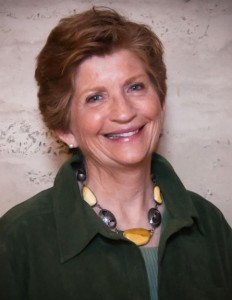 On widows and money … Click to listen:
On widows and money … Click to listen:
Widows are old women, about the age of our grandmothers, right? Well, not exactly. Here’s what I found on a blog today:
“I just read that the average age for a widow is 56. Seems rather young to me…”
“I got inducted at 40 …”
“Well I am 58.”
“I am 51 and hubby was 57…”
“I might be the exception. I’m 33, hubby passed at 34.”
“I was 52, my husband was 53.”
The truth is that today around 90 percent of women outlive their spouses and the average age of a widow in the U.S. is 56.
Why is this important? Because too many women who are uncomfortable with money hide behind excuses like “Oh, money is a man’s job” or “I’m just not good at money so I leave that to my partner.” And they’re totally ignorant about their finances.
That’s a recipe for disaster. For total vulnerability.
Realize that nothing could leave you less prepared to deal with the double whammy of a serious life event such as the death of a mate. You’d be facing not only the massive grief, disorientation, and loneliness of such a loss, but would also be totally unprepared when it comes to your finances.
You say it couldn’t happen to you? Well, more than 14 percent of women between 20 and 64 are widows. So maybe you need to think again.
Nobody wants to think about the unpleasantness of death, whether their own or someone else’s. But, to my knowledge, none of us is going to come out of this life alive. So maybe a little time and energy invested in being more of a financial partner with your mate might be a good strategy.
[As a side note, this works in the opposite direction as well, if the woman has taken total control of finances and has left her partner in a vulnerable position. Lack of knowledge is lack of knowledge; it knows no gender.]
So here are the first conversations and actions to have together:
1. Find out what each one wants. What do each of you have as financial goals and how do you define wealth or financial freedom? What’s important in terms of lifestyle? What are your hopes and dreams?
2. Find common ground. Once everything is on the table (you might be surprised what you hear!), figure out how to come to some common vision so you’re not working at cross purposes. You won’t have identical goals; after all, you’re two distinct individuals.
3. Get clear on where you are today. Find out what has been done already in terms of planning (or not!) by the other party. Get real clear on where you stand financially as a couple and try to understand exactly what you both have in terms of debts, assets, investments … all the things you’ve probably been hiding from.
4. Put a plan together. If one of you is better than the other at putting together a spending plan, fine. But don’t prepare one in a vacuum. Talk about it. Make joint decisions, knowing that some of them will be tough. It’s okay; you’ll survive whatever they are.
5. Share the bill-paying function. Don’t let bill-paying be a lonely function. Share the responsibility, either alternating or doing it jointly. This not only keeps the dialog open, and allows you to adjust as circumstances change, but also helps you both stay accountable.
6. And have the toughest conversation. As much as you’d like to avoid it, talk about death, about each other’s last wishes. About what will happen to the children, if there are any. See an accountant, financial advisor, lawyer and any other counselor to be sure you have all your critical papers in order: wills, trusts, and so forth. And know where everything is.
Your relationship is a partnership, in every possible way. Not having an open dialog about money allows part of that partnership to wither. To cut one person out of the money dialog is disrespectful and disempowering, and you both deserve to have a voice in it.
Besides, when one of you dies, do you really want to leave the other vulnerable at an already difficult time? Or would it be better to be fully prepared and empowered so at least one part of that painful period can be a smooth transition?
No excuses. No “we’ll do it next year.” It’s never too soon. You’re never too young.
So go ahead, do it now. (And leave me a comment below on when you’ll have that done …)
xxxxxxxxxx
 Bio: Sharon O’Day lost everything at age 53: her home, her business, everything. But how could that be? She’s an expert in global finance and marketing with an MBA from the Wharton School. She has worked with governments, corporations, and individuals … yes, she was the secret “weapon,” if you will, behind many individuals in high places. But yet she did! Since then, Sharon has interviewed countless women and done extensive research to understand how that could have happened, especially with her strong knowledge of numbers and finance.
Bio: Sharon O’Day lost everything at age 53: her home, her business, everything. But how could that be? She’s an expert in global finance and marketing with an MBA from the Wharton School. She has worked with governments, corporations, and individuals … yes, she was the secret “weapon,” if you will, behind many individuals in high places. But yet she did! Since then, Sharon has interviewed countless women and done extensive research to understand how that could have happened, especially with her strong knowledge of numbers and finance.
The surprising answers will be shared in her upcoming book “Money After Menopause.” Today her mission is to show as many women as possible how to become financially free for the long term, through her “Over Fifty and Financially Free” coaching programs. She has developed a step-by-step plan to get past all the obstacles that keep women broke and scared … and from reaching the financial peace of mind they so deserve.





